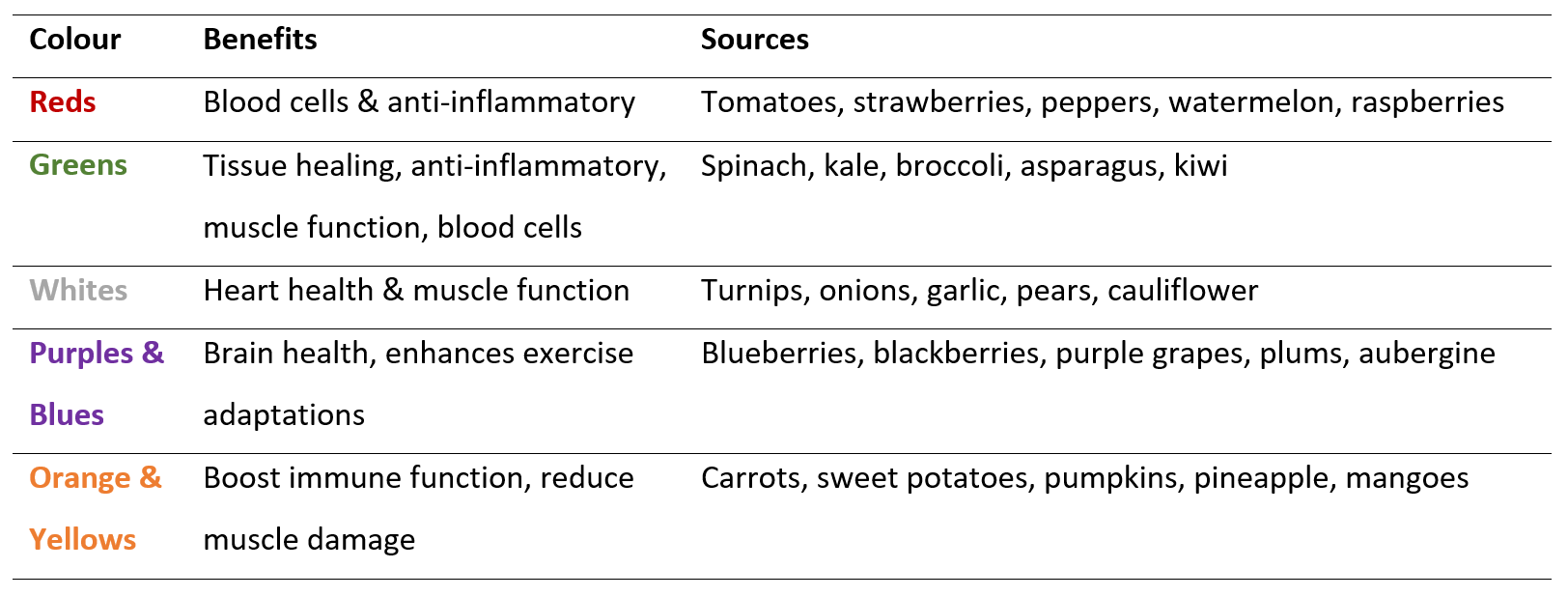We’re all aware how important a role nutrition plays when it comes to the performance and wellbeing of adult athletes, but can the same be said for youth athletes? We’ve turned to our in-house performance nutritionist, Owen Woodley, to gauge his thoughts on all things nutrition in adolescents, including the role nutrition plays in youth athletic development and important considerations to keep in mind.
Why is nutrition in youth athletic development important?
Adolescence is an important period of an individual’s life, not least as this is the time when lifelong habits can be created; a vital component of shaping a lifelong positive relationship with food and nutrition. Nutrition can play a huge role in a youth athlete fulfilling their potential, so it’s important that young athletes gain exposure to sound nutritional advice to establish a good relationship with food. Throughout adolescence, adequate energy is required to meet the significant growth and physical development that takes place, making the food you consume all the more important. Changes in body composition, hormones and metabolism can be difficult to navigate, however, understanding how to fuel these changes can have great health and performance benefits.
What problems can occur if you neglect good nutrition during adolescence?
Poor nutrition can have major implications for health and performance in younger athletes. A major concern for mismanaging nutrition is under-fuelling and consequently causing low energy availability (LEA). LEA is a serious health concern as it can lead to delayed puberty, poor bone health, irregular menstrual cycles, stunted growth and increased injury risk, to name just a few.
Performance may also be significantly reduced if nutritional requirements among young and developing athletes aren’t met, as coping with the physical demands of sport is essential for athlete development. Neglecting nutrition could therefore negatively impact athlete growth, recovery, adaptation and body composition.
What are the benefits of focusing on adolescent nutrition?
Alternatively, understanding the value of correct nutrition and implementing an appropriate nutrition strategy could significantly improve a young athlete’s health, performance and, ultimately, their career prospects. Maximising pitch time is going to be essential for players to be able to develop the skill set they need to transition into a professional player, and fuelling correctly can play a major part in avoiding injuries and illness. This means that players are maximising their opportunity to perform well, whilst also providing consistency to their game by being on the pitch.
What are the key nutritional considerations for youth athletes?
Carbohydrates are the main fuel source for medium to high intensity exercise. The sources for carbohydrate metabolism are glycogen stores in the muscle, glycogen stores in the liver and exogenous carbohydrate that enters the bloodstream through the consumption of carbohydrates. When compared to adults, youth athletes may depend more on exogenous carbohydrate intake because their muscles are smaller, meaning there is less storage for glycogen in the muscle. It’s therefore recommended that carbohydrates make up around 50% of a youth athlete’s total daily caloric intake, although this may change slightly day to day depending upon a number of factors such as training demands, competitions and psychological demands (e.g., school exams).
Protein is probably best known for its importance in muscle protein synthesis (muscle building), however, protein is needed for more than just muscle. In fact, protein is needed for every cell in your body to function correctly. Athletes often require higher intakes of protein to meet the demands of sport. For example, the recommended daily intake of protein for the general population is 0.8g/kg/bm, whereas the recommendation for athletes is 1.6-2.2g/kg/bm. Similar to adult athletes, youth athletes have higher protein requirements, with recommended intakes between 1.4-2g/kg/bm per day.
Dietary fat plays an important role in the human body by allowing the absorption of fat-soluble vitamins (A, D, E & K) and supplying essential fatty acids that cannot be synthesised. There are two main sources of fat: saturated and unsaturated. Youth athletes should opt for unsaturated (natural) sources of fat such as avocados, nuts and oily fish and limit saturated fats derived from sources such as cakes, biscuits and fast food. Total fat intake should represent around 30% of total caloric intake, with no more than 11% being consumed via saturated fats.
Micronutrients are vitamins and minerals that contribute to the normal functioning of the body. Consuming a wide variety of fruit and veg will provide the body with micronutrients; an easy way to do this is by ‘eating the rainbow’.

Hydration is a vital component for health and performance. Water represents around 50-70% of the body’s total mass, so consuming enough water is essential. A 2% reduction in bodyweight via water loss can reduce physical and cognitive performance by up to 10%. Consuming around 30ml/kg/bm per day, plus 500ml for every hour of exercise, should allow for adequate hydration. This may change slightly day to day depending on a number of factors such as training demands and climate.
Youth athletes and nutrition
Understanding how to fuel correctly can have great health and performance benefits and is especially important during adolescence. At Nutrition X, we are passionate about long-term athletic development, ensuring youth athletes have the tools they need to make the correct nutritional decision to help with their development.







